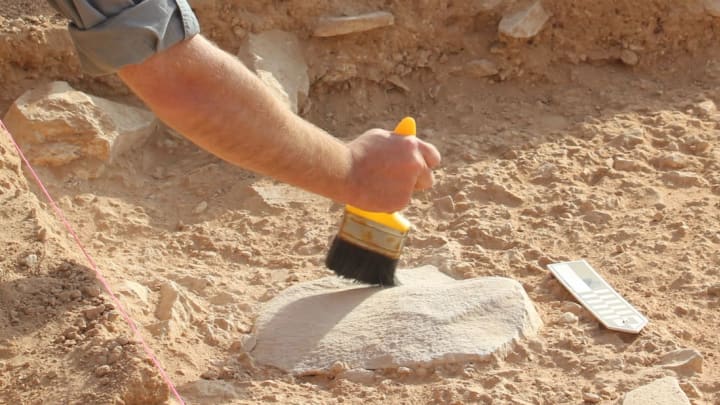Of all the human species that once roamed the world, only one remains—us. Why did our primitive cousins go extinct? For Homo erectus, something like laziness may have played a role, Cosmos reports.
A new study in the journal PLOS One explores the role that H. erectus's lack of drive may have contributed to its extinction. The international team of researchers based their analysis on an excavation of a paleolithic site in central Saudi Arabia with more than 1 million artifacts, finding that the tools H. erectus made were of consistently lower quality than what tool makers in later periods used. Their tools were constructed with whatever material was easiest to get, rather than what would make the best tools.
And it wasn’t because better materials weren’t available. "At the site we looked at, there was a big rocky outcrop of quality stone just a short distance away up a small hill,” study co-author Ceri Shipton of the Australian National University said in a press statement. “But rather than walk up the hill, they would just use whatever bits had rolled down and were lying at the bottom.” He added, “They knew it was there, but because they had enough adequate resources, they seem to have thought, ‘Why bother?’”

Meanwhile, other hominin species, like our own Homo sapiens, were happily clambering up mountains to seek out better materials for their tools. Shipton suggests that H. erectus lacked the tendency toward exploration and curiosity that has helped our species thrive.
The authors theorize that “laziness,” combined with changes to their environment, was likely what did in H. erectus. As the humid environment around them became drier, H. erectus seemingly didn’t adapt: They didn't invent new kinds of tools to deal with the changing landscape, nor did they relocate or travel farther afield. The research team found the tools largely near dry river beds, suggesting that H. erectus neither progressed technologically nor modified their behavior for their altered habitat.
H. erectus did manage to walk upright as we do—a first in human evolution—and it was likely the first hominin to expand their habitat beyond Africa. But the combination of these two newly identified shortcomings, the authors argue, may have contributed to H. erectus's demise. Others expressed doubt about this theory, pointing out that these hominins were pretty successful, existing for some 1.5 million years. However uncreative their methods were, they worked for a long time.
[h/t Cosmos]
Editor's note: This post has been updated.
